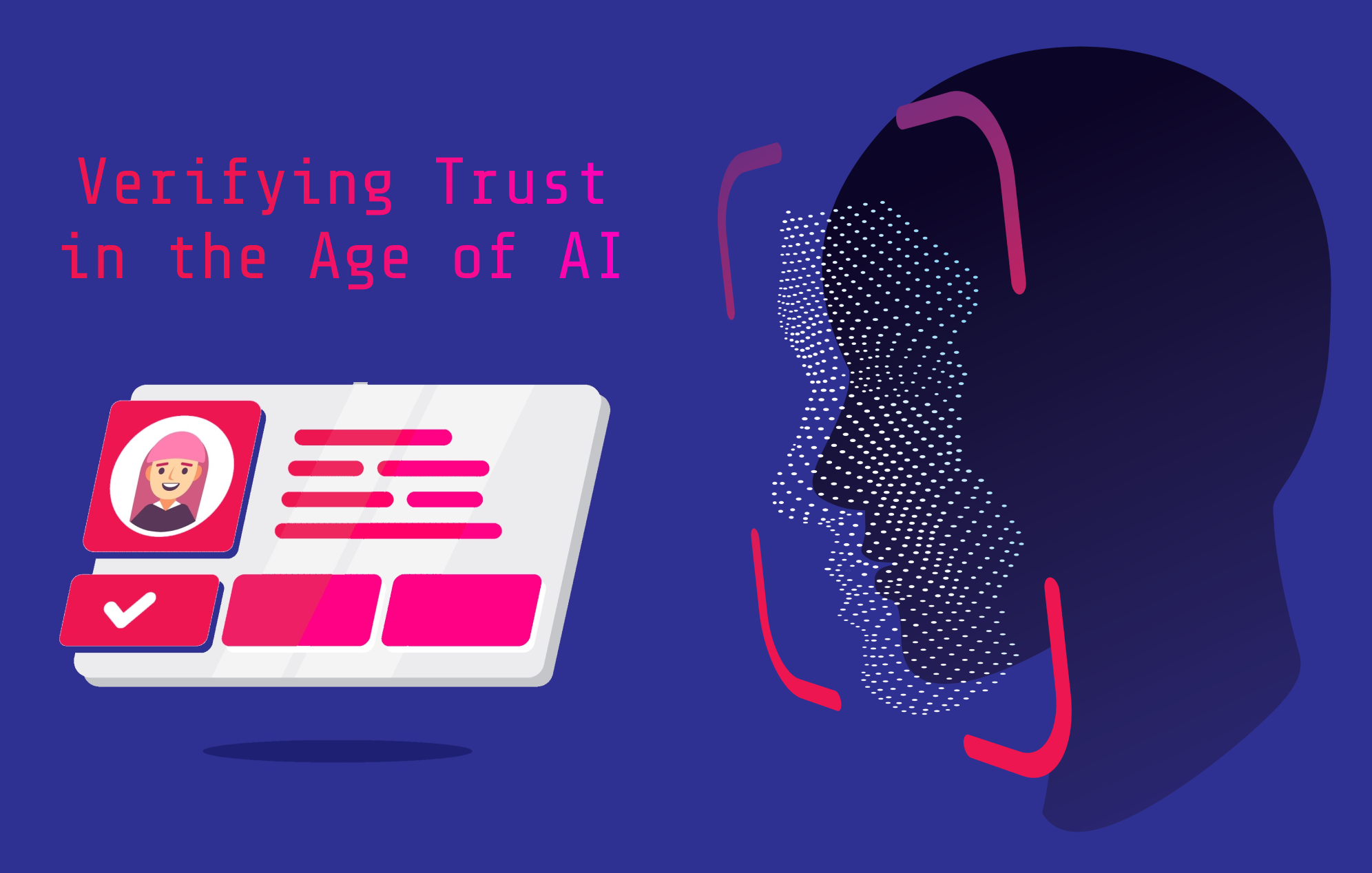Researchers at OpenAI and MIT have proposed a new approach to authenticating users are human without revealing personal data
In a recent white paper, researchers from OpenAI and MIT introduced the concept of “personhood credentials,” a proposed method to verify whether an online user is genuinely human rather than an AI-generated entity or automated system. This solution aims to address challenges like misinformation, fraud and online manipulation by providing a reliable means to differentiate humans from bots or AI.
The idea of personhood credentials stems from the increasing sophistication of AI, which have blurred the distinction between human and non-human activities online. The proposed system would use cryptographic techniques to create a unique identifier for each user, enabling them to verify their human status without revealing personal information.
We asked our CEO, Raj Ananthanpillai, for his thoughts about personhood credentials. Here’s what he had to say.
Q: How could implementing “personhood credentials” impact how businesses verify the authenticity of online transactions and interactions?
Raj: Using personhood credentials could help businesses confirm that online users are real people, not bots or AI systems, and make it easier to prevent fraud, fake information and AI impersonation. For businesses, it could mean a safer and more trustworthy online space, especially in ecommerce, customer service and platforms with user-generated content. For individual users, knowing that they are interacting with other real people or businesses would increase trust and confidence when making purchases or sharing personal information. For service providers, it would ensure the integrity of their platform, leading to safer transactions, higher quality interactions and a stronger, more reliable online environment for everyone.
Q: What challenges do researchers face in ensuring that “personhood credentials” are both secure and widely adopted in the commercial sector?
Raj: The main challenge is finding a balance between security and ease of use. To keep personhood credentials secure, they need strong encryption and protection from tampering, but they also have to be easy for people to use and for businesses to adopt on a large scale. Both businesses and customers need to trust the system, as they may worry about their data privacy and misuse. Personhood credentials also need to work smoothly across different platforms and industries. Researchers need to solve these issues while making sure the system stays affordable and practical, especially for areas like ecommerce, where seamless, large-scale solutions are essential.
A much more practical solution is reusable, verified digital trust credentials, which are broader in scope, more versatile and available today. Personhood credentials would be more situational, tailored to environments where AI impersonation is a concern and is usually a single-use credential. Reusable, verified digital trust credentials, on the other hand, are designed to verify both identity and additional attributes like qualifications or credentials and can be reused across multiple platforms and industries to build trust in a wide range of online interactions. Reusable trust credentials work in multi-channel and multi-modal environments without unnecessarily exposing or transmitting personally identifiable information.
Q: How might the rise of AI-driven fraud and misinformation influence future regulatory policies in online commerce?
Raj: As AI-powered fraud and misinformation continue to evolve, regulators will likely introduce stricter rules to verify users and protect data while maintaining the privacy of individuals. Businesses may soon be mandated to implement identity tools to prevent automated systems from exploiting digital platforms. These regulations could also require transparency from companies about their use of AI and their responsibility for ensuring secure transactions are verified by real people.
Be sure to check out some of our other featured content to learn more about how organizations can combat fraud and navigate trust & safety in our current digital landscape.
